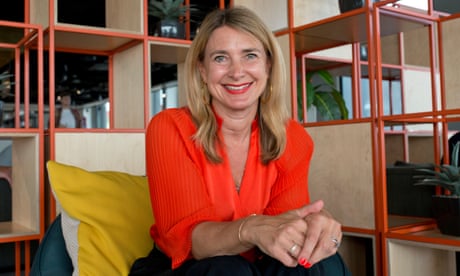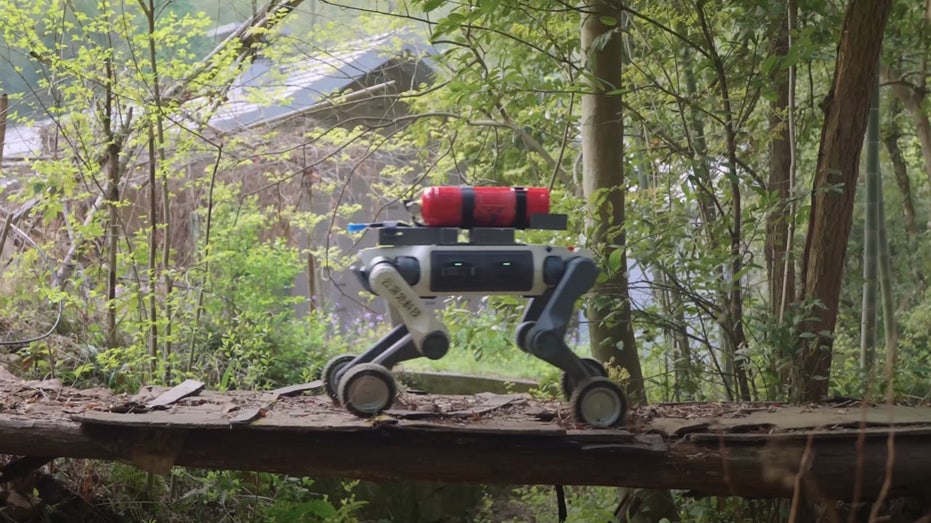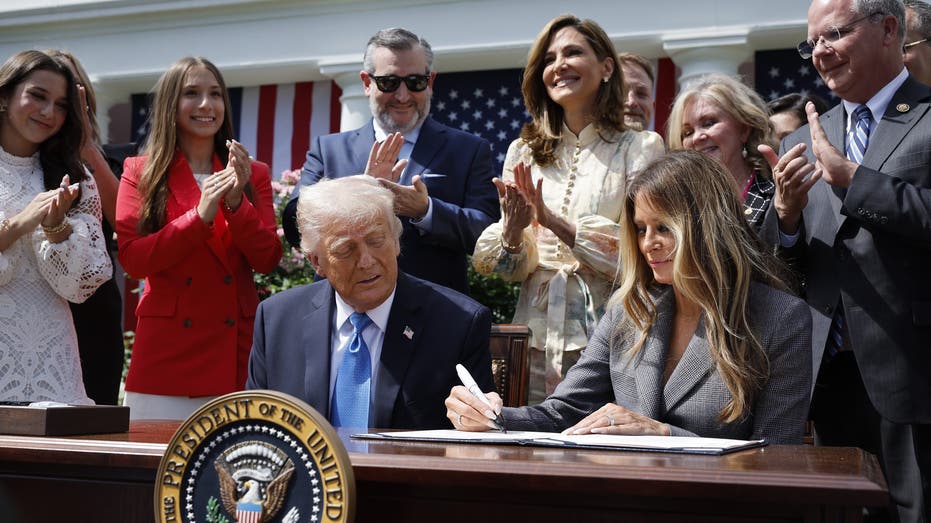- by foxnews
- 23 May 2025
From hate speech to AI music: the YouTube chief trying to leap tech
From hate speech to AI music: the YouTube chief trying to leap tech?s biggest hurdles
- by theguardian
- 21 Sep 2023
- in technology

Alison Lomax's presence on the video streaming platform she runs is relatively scant compared with the YouTubers with whom she spends much of her time.
But what clips exist succinctly chart the marketing tech revolution she's been navigating: there's a badly framed 12 minutes from 2014 of Lomax lecturing on the rise of influencers working with brands; in another she describes how TV companies woke up to the potential of partnering with YouTube in 2016; and there's her on stage at London's podcast show this year, discussing YouTube's imminent relaunch into the booming audio format.
Now, Lomax stands at the "inflection point" of the next hot technology: the generative artificial intelligence behind chatbots such as ChatGPT and image generators such as MidJourney.
YouTube, launched in 2005, is no stranger to AI: it is used in its recommendation algorithm; to moderate content; and, latterly, for automatic language translation. "We're committed to embracing AI in a bold way," says Lomax. "But we have to do it really responsibly."
To this end, YouTube has published a set of AI principles designed to give assurance it would partner with the music industry to balance copyright holders' interests with those creating generative AI-based songs, such as those from the Oasis knockoff AIsis.
Lomax says the focus is on "protecting artists' integrity and creative expression". Meanwhile, she says a project with Universal to create an incubator for artists to research AI's potential shows the "strength of the partnership" with the music industry.
Will YouTube watermark videos when AI has been used? "There's no answer on that yet," Lomax straight-bats in response, declining also to answer how the site plans to monetise AI or whether the Bard chatbot from its parent company Google scrapes the platform. Lomax is also coy on whether YouTube will further increase royalty payments to ultimately match Spotify, amid scrutiny over musicians' revenue, but says the platform has been "very instrumental" in breaking artists such as Ed Sheeran and Drake.
She sits in a YouTube studio in Google's office at King's Cross in London, where nearby the tech giant's vast "landscraper", designed ultimately to hold 4,000 employees, is being built. It's 25 years since the creation of the company which would fundamentally change how humans find information, but Lomax is a relative veteran "Googler" (the cringey internal term for employees), having taken on the YouTube UK job earlier this year after a decade with its parent.
A politics graduate, she began her career working on government digital campaigns in the dotcom boom before a series of roles at advertising agencies. (She describes working on the launch of the national lottery online as "game changing".) Andrew McGuinness, the adman who contributed to Tony Blair's trio of election successes and employed Lomax during the financial crisis, describes her as a "first class operator".
She says YouTube Kids, its service for under-13s, is designed to safeguard children, but urges parents to have an "open dialogue" about what their children are watching. "YouTube has changed a lot over the last five years [when there were] challenges around brand safety, whereas now we've got the right protections in place."
We meet before the allegations of rape and sexual assault against one of YouTube's biggest stars, Russell Brand, emerge. The video streaming platform will on Tuesday go on to suspend Brand's ability to earn money on the platform, where he has 6.5 million subscribers.
We do discuss another controversial figure associated with the platform, Andrew Tate, the misogynistic influencer who was only banned from YouTube after amassing more than 1 million followers. "The policies that we had in place [meant] we removed the content and the channel when it was appropriate," she says. So could YouTube breed another Tate? "We have our hate speech policy in place and will enforce the right impact when necessary." She says she has watched his videos: "Andrew Tate has very different views, and views that I don't subscribe to."
What Lomax does subscribe to is YouTube's army of creators - and their employees - making a living off the platform and products promoted on it. She lauds some standouts: Dr Becky, the Oxford University researcher who explains astrophysics; and the Sidemen, the British group featuring KSI which has nearly 20 million followers.
An Oxford Economics report estimates that YouTube creators contributed �2bn to the UK's GDP in 2022. In the UK, 96% of the population watch it at least once a month. Globally, YouTube revenues were $29bn last year and product chief Neal Mohan has taken over as global boss from longstanding chief executive Susan Wojcicki.
But the growth of the platform, which has seen ad revenues return to growth, and Google - whose own parent, Alphabet, has undergone a 50%-plus rise in its stock this year to value it at $1.72tn - is not without opponents. Google, and its Big Tech peers, have acquired the image of monopolistic companies that are too powerful to regulate, and it has faced criticism over the years on topics ranging from privacy and anti-competitive practices to questions over its tax rates. Founders Larry Page and Sergey Brin's original motto, "Don't be evil", has been retired - but does it still stand? "I'm very confident about the vision that we have as a business and the ethos that we have."
Lomax also holds a directorship at Trans in the City, which promotes transgender, non-binary and gender diversity among businesses, sharing best practice in training and support for employees, including healthcare plans. She says progress has been made, even in the cultural Stone Age that is much of the City of London, but "for organisations we need to really think about what our workplace of the future will look like and ensure businesses are set up for success".
- by foxnews
- descember 09, 2016
United Airlines flight returns to Hawaii after concerning message found on bathroom mirror; FBI investigating
United Airlines Flight 1169 to Los Angeles returned to Hawaii after a "potential security concern" aboard the plane. The FBI and police are investigating.
read more





